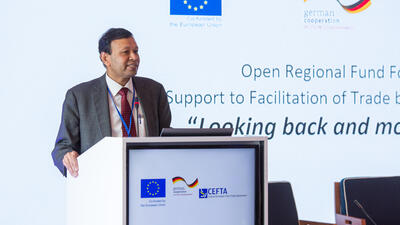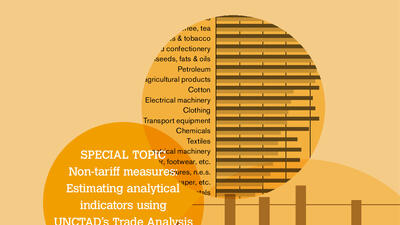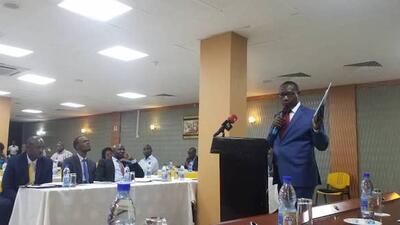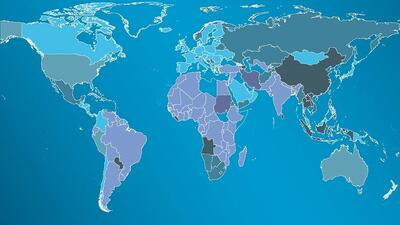Cutting dwell time to boost trade
The simplification and harmonization of customs controls, which the World Customs Organization (WCO) calls ‘trade facilitation‘, is vital for supporting international trade, export growth and economic competitiveness. A growing body of research shows how customs and other border agencies can reduce trade transaction costs and inefficiencies, and thus contribute to economic competitiveness. The WCO is supporting customs administrations in developing countries and least developed countries to modernize, improve trade facilitation, and thus promote export growth, including for small and medium-sized enterprises (SMEs), which make up the bulk of businesses around the world.
Trade facilitation can result in faster clearance and shorter dwell times for legitimate trade. For instance, in the 2012 World Bank study of port waiting times (Raballand, Gaël et al. (2012) Why Does Cargo Spend Weeks in Sub-Saharan African Ports?), known as dwell times in the industry, sub-Saharan Africa demonstrated the many factors that can improve port efficiency and increase attractiveness. The port of Durban, South Africa reduced its dwell time from seven to four days as a result of implementing a wide range of measures, including comprehensive customs modernization. This reduction more than doubled the capacity of the container terminal without any investment in physical extensions. This suggests that reducing dwell times through the resolution of structural problems, corruption, poor handling and customs broker inefficiency can have a long-term positive impact on port operations and should be dealt with before investing in the physical extensions of storage.
The WCO Economic Competitiveness PackageThe WCO has developed many instruments, standards and tools to support trade facilitation that are delivered via a robust capacity building programme. The WCO is promoting these efforts under the banner of its Economic Competitiveness Package (ECP). The ECP is also intended to provide practical implementation guidance in preparation for any future World Trade Organization agreement on trade facilitation.
The principles laid down in the International Convention on the Simplification and Harmonization of Customs Procedures, better known as the Revised Kyoto Convention (RKC), are at the core of the ECP. The RKC is the international standard for making customs regulatory procedures as efficient as possible. It elaborates upon several important principles, including transparency and predictability of customs actions; standardization and simplification of the goods declaration and supporting documents; simplified procedures for authorized persons; maximum use of information technology; minimum necessary customs control to ensure compliance with regulations; use of risk management and audit-based controls; and coordinated interventions with other border agencies.
As part of the ECP Action Plan, WCO members submit examples of best practices that will support trade facilitation. One notable practice particularly relevant to SMEs is the Small Business Lens Checklist (SBLC), which aims to reduce regulatory costs for small businesses. The SBLC can assist governments in designing, modifying and reviewing policies and procedures from a business perspective. It provides a standardized approach to designing or refining programmes and policies. It ensures greater business focus and allows for more industry input in the process.
The goal of using the SBLC is two-fold. The first is to focus on the concerns and issues of commercial clients, in particular SMEs, when assessing the impact of new information requirements and border obligations. The second is to institutionalize business simplification principles within the culture of government departments and agencies. The desired outcome is to improve client services, streamline and simplify policies and procedures, and reduce the administrative burden placed on business, all of which will assist exporters in remaining competitive in the world market.
Performance Measurement ContractsThe Performance Measurement Contracts programme is a joint World Bank-WCO initiative aimed at helping several developing countries in West Africa improve customs trade facilitation while simultaneously raising their revenue collection. It entails a system of performance contracts signed between customs headquarters and frontline customs officers. The objective is to encourage customs officers to adopt good professional practices. The contracts are mutual undertakings between inspectors and headquarters, within the framework of a small number of indicators geared towards facilitation and enforcement. Ultimately, inspectors are evaluated based on the provisions set out in the contracts. The best inspectors are rewarded, and those who perform poorly may be transferred to less prestigious posts. In every country where the programme has been tried, clearance times have dropped dramatically, which has greatly benefited businesses, especially SMEs.
The WCO is committed to supporting customs reform and modernization. Instruments, tools, standards, and capacity building approaches that promote trade facilitation efforts to improve the economic competitiveness of businesses, including SMEs, are a vital component of this commitment. Through its Economic Competitiveness Package, the WCO will continue to deliver such assistance.
For more information, see http://www.wcoomd.org/en/topics/key-issues/ecp-latest-proposal.aspx












